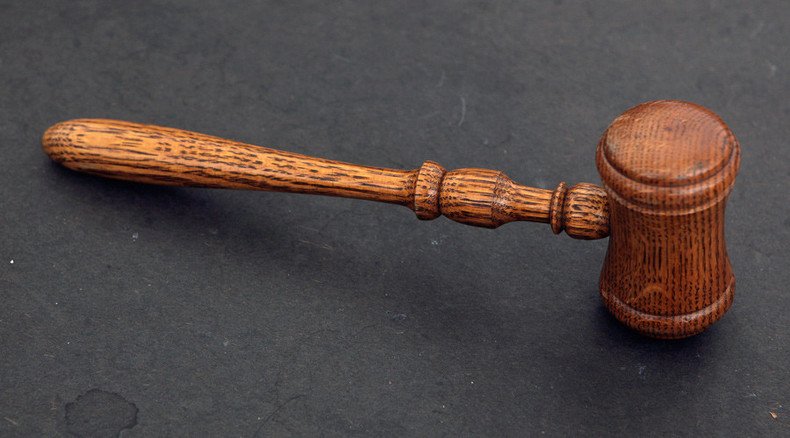'AP lawsuit against FBI opens window on secret world of intelligence’

An AP lawsuit over access to FBI records involving a fake news story is very important as, among other reasons, it gives Americans a chance to ask candidates’ questions on accountability in such cases, Andrew Kreig, executive director of the Justice Integrity Project told RT.
The Associated Press (AP) is suing the US government. The American news agency is demanding the FBI provide information on how it ensnared a suspect using a fake AP story.
RT: Were the actions of the FBI legal?
Andrew Kreig: We’re living a world where many people in law enforcement, in intelligence and elsewhere say if they’ve done that, it’s automatically legal. That is not our historic interpretation, so most of us who grew up under the same laws, but with different interpretations would say: “It’s not legal unless there are warrants and other safeguards.”
RT: Have there been similar cases of government agencies impersonating journalists?
AK: Yes, but they are often not cases that are litigated, because they are secret. One of the many important aspects of this is that shows a window onto the secret world of law enforcement and intelligence that we as researchers only see scraps of. This is, in my opinion, a very small tip of the iceberg, and that is why it’s so important that AP is moving forward in this situation.
RT: How likely is the Associated Press to win its case against the government?
AK: The FBI is talking about taking two years to find the documents. This incident happened in 2007. So that is already eight years ago - we’re talking about two more years- that would be 10 years to find out about one situation, when there could be vast numbers of situations.
Going back to the previous question, the [former] head of the CIA was a journalist for his early part of the career - Richard Helms. We know from the exposes in the 1970’s that people forget that there is enormous standard practice of the agency using journalists, impersonating journalists - all of that is a part of the history that needs to be put into the context of this lawsuit.
READ MORE: Associated Press sues US DoJ over access to FBI records
RT: Are any government officials likely to be brought to account in this case?
AK: Probably not. Again, it was eight years ago. That is a great question, because one of the things, as Americans look at the candidates and have a rare chance to ask them questions, they should be asking about accountability in this kind of situation. We’re not talking about sending somebody to prison, at least I’m not, but there should be something on the record that the people responsible suffered some reprisal. Maybe it’s just a letter in the file, or maybe slight suspension. But it’s got to be sending a message that this is not appropriate, because it’s not just one case. The Associated Press is looking for the pattern, the FBI is resisting that. They could find that, if they wanted to- they don’t want to; they want it to blow away.

Phishing attacks– not only technique FBI uses
Cyber-security expert Winn Schwartau said that we “need to have more transparency on the capabilities of law enforcement in order to do investigations.”
RT: Is this kind of way of ensnaring a suspect something new? Is it difficult thing to achieve this?
Winn Schwartau: No, technically it was a non-issue. In this case they knew who they were targeting. They send at least one, maybe more e-mails that have an infected link to a host site. That is a typical phishing campaign. The real question here though, in my opinion, isn’t how technically hard it is - it’s trivial. It’s really the legality of the issue.
RT: What are your thoughts on that then? From your perspective is this something clearly illegal?
WS: No, it is absolutely unclear. Number one, in the US it is 100 percent legal for police to lie to people. You’re picked up for crime, or they are interviewing you- they can lie to you, absolutely: “I’ve got your DNA, I can prove this, I know you’re a bad guy...” - all of these are absolutely legal. There are a couple of exceptions though. And one of those exceptions specifically is for the police to masquerade as the legal representative of the person that is being questioned. In this case we’re entering into a new area. The law enforcement was effectively masquerading or disguising themselves as the media. But the FBI is going to argue: “No, we were masquerading ourselves as some other source IP e-mail address and merely linking them too”. We’re in the brand new territory here. And both sides have staked out their positions very clearly. This is probably going to go very far in the courts.
RT: What's the best way, if any, to secure oneself from being spied on?
WS: I don’t know, I haven’t seen the e-mail, but if it’s anything like conventional phishing attacks, it’s going to be something that is going to try to convince you to click, to open an attachment, a zip file, a PDF, or link off to see the latest pictures of some stars. Whatever the enticement may be. And this is basic security awareness 101: don’t click on suspicious links, don’t open attachments from people you don’t know, use appropriate anti-virus and anti-malware scanning software on everything, and when in doubt, don’t click.
RT: What other sort of methods will the FBI be using, apart from phishing? What other thing should we be looking out for?
WS: The FBI, in this particular case, was using a technique known as phishing. Now, does that mean that’s their only technique? Of course, not. They certainly have also available to them - what we call Title III – that if somebody is sufficiently of interest in an investigation, for whatever reason, judges can approve certain types of wiretaps; they could install software on a computer physically. In this particular case, perhaps there is a judge’s order that is allowing them to treat this as a Title III investigation. Those details are not available yet, and the AP is calling the FBI out on this for a little bit more clarity. And I think that they are absolutely right - we do need to have more transparency on the capabilities of the law enforcement in order to do investigations. There is a little bit too much secrecy going on from my taste.
The statements, views and opinions expressed in this column are solely those of the author and do not necessarily represent those of RT.
LISTEN MORE:
The statements, views and opinions expressed in this column are solely those of the author and do not necessarily represent those of RT.












